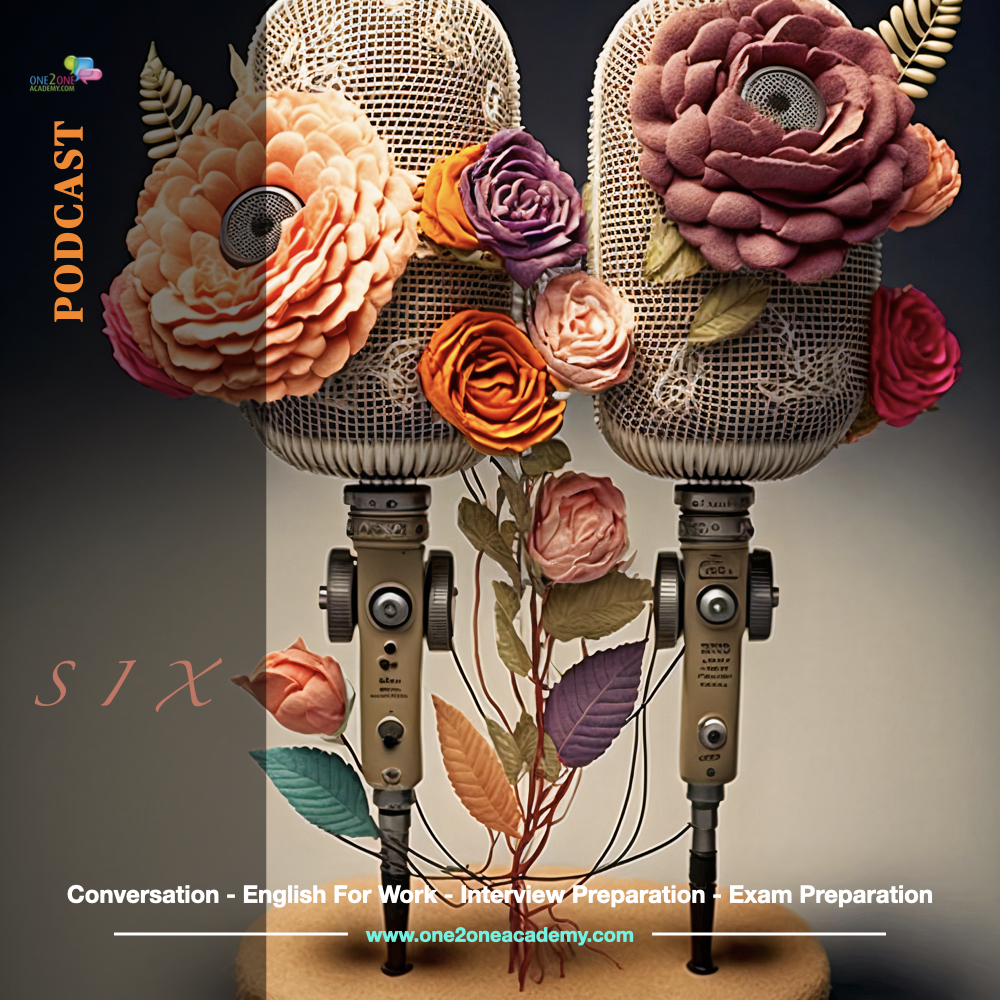Six – IELTS Reading
Six, a podcast to help with the understanding of the reading section of the IELTS exam. Six will help you to obtain a higher score.

Spotify Podcast
Transcript
Reading – A Six-Point Plan
Is there a strategy for the reading section of the IELTS exam, and can you truly develop a system to achieve a higher score?
Welcome to this edition of one2one podcasts. I hope you can develop a strategy for this part of the exam and obtain a higher score.
Before I start, pay particular attention towards the following 6-point plan:
Before you read the text, read the questions.
Scan through the paragraphs.
The introduction and the conclusion are critical to the text.
Search for keywords.
You must answer every question.
Check everything.
Six – Preparation
The reading section is often challenging, especially if you are preparing for an IELTS exam. Learning about synonyms, antonyms, and paraphrasing is vital to mastering this section.
Be aware of believing that you can search for words in the text you have taken from the question. This would be a simplified task if that were true. Very often, you are searching for understanding, which can mean that the answer has changed the text order and the vocabulary. The meaning of the text can be the same, but the text is entirely different.
Keywords
Students should pay particular attention to the meaning of the text, so that’s why you will often hear the expression skim or search for keywords.
Keywords will help you understand the gist or essence of the text, and this task is performed quickly to help you with time-sensitive deadlines. Consider time as your opponent, so ensure that when you practice, you set a timer.
There is an unwritten rule that you should always check your answers, and understandably, students state that this is an impossible task given the deadline. However, the checking process helps you reduce the margin of error, so it should be very high on your list of priorities.
Subtitles on movies and TV streaming platforms do not always help since they can promote slang and vocabulary irrelevant to this exam. You should isolate official material from the exam board to practice and become accustomed to the writing style and terminology.
Six – Fear
Fear of an exam can only be overcome if you are very familiar with the structure and format so that there are no surprises and your practice is more relevant.
If you are looking at answers to check your work, try to find out how those answers are related to the text so that you become aware of meaning and comprehension and reduce guessing, which can often be the case.
Knowing where you make errors and developing the ability to correct them is very much part of the learning process. Of course, boredom due to repetitiveness will also play a role, but this is normal with any exam format, as you must work within its framework. Therefore, stay motivated, and remember why you are taking this exam.
Employment
You are showing a future employer that you have a level of language proficiency that they can depend on. This means you can talk to clients, write emails, participate in team meetings and even deliver a presentation. So take the perspective that the higher your score, the more you can offer an employer and that your salary will reflect the above.
Stay focused on your dream, whether it’s a promotion, job search, or even immigrating to another country. That should form the emphasis of your motivation to pass this exam.
Unfortunately, that’s all the time we have for today. Please remember to like, comment and share this podcast. You can find a link to our website on our profile or in the podcast description box.
Until next time, bye for now.
The Conversation Course
Presenter – Sanj Saigal
Website – www.one2oneacademy.com
Production – One2one Podcasts
